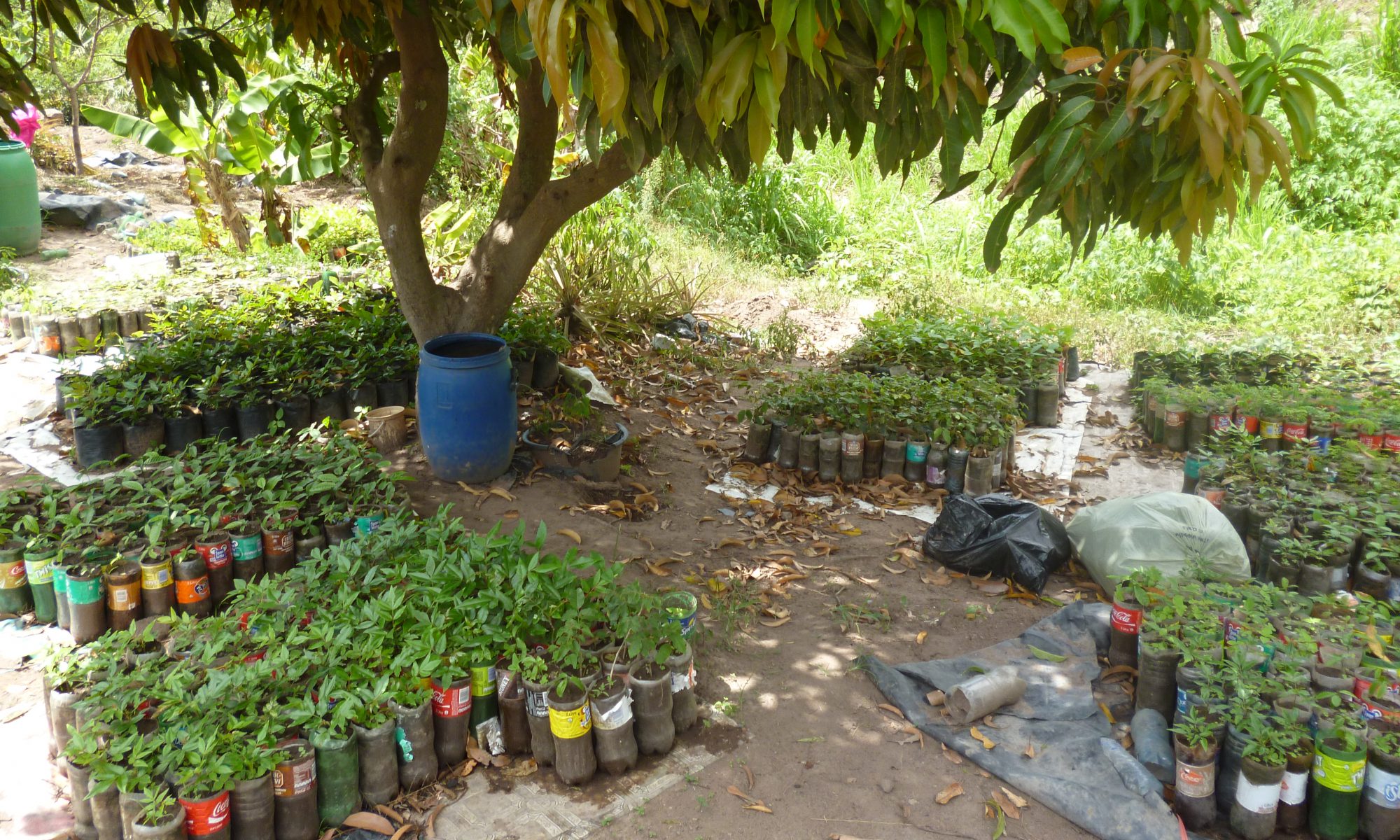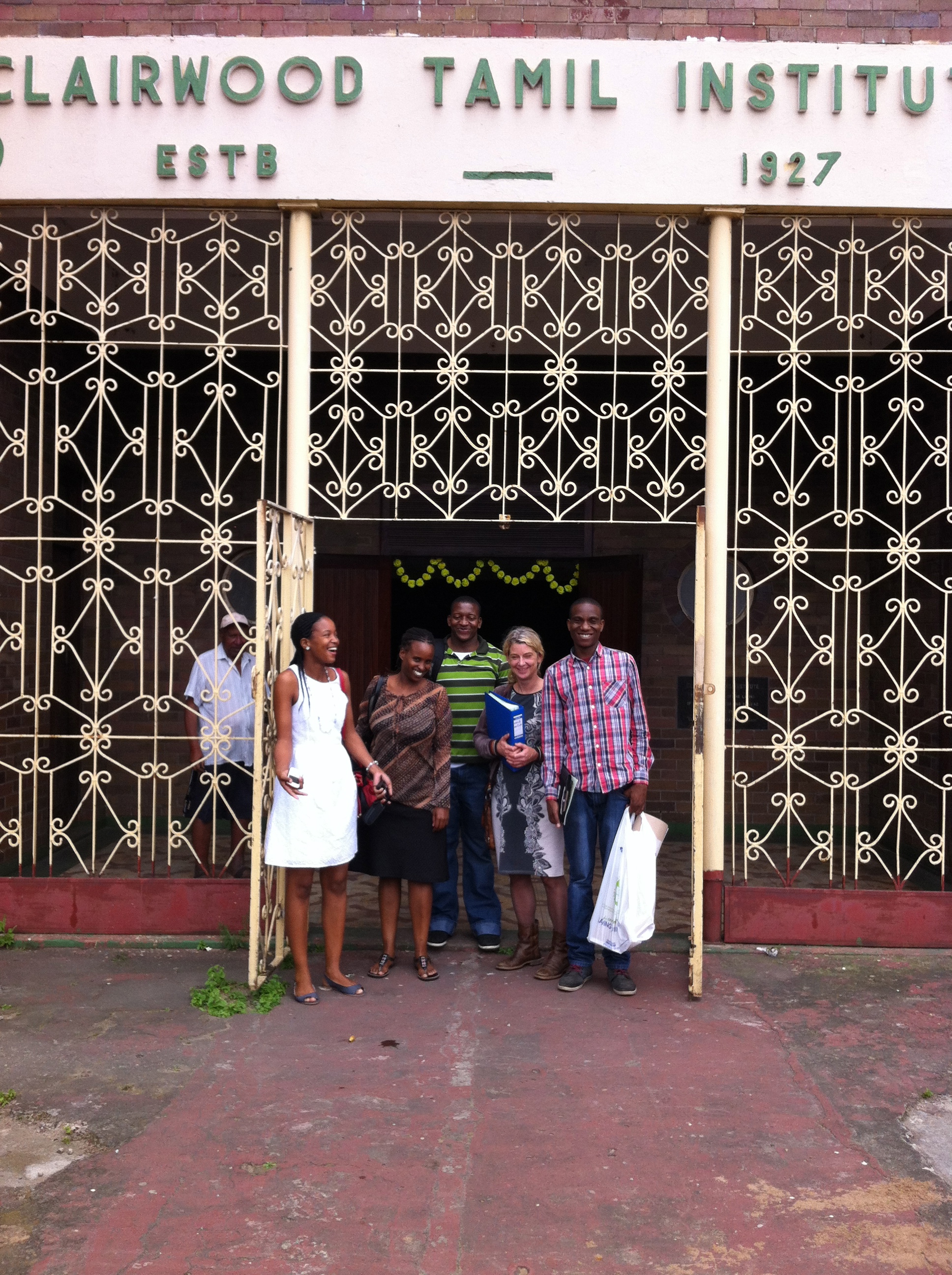[Photo: The SARChI team from UKZN’s School of Built Environment and Development Studies (BEDS) at the Clairwood Tamil Institute.]
The South African Research Chair on Applied Poverty Reduction Assessment (SARChI) team from UKZN’s School of Built Environment and Development Studies (BEDS) recently visited the Clairwood Tamil Institute to present to the community the preliminary research findings from the 2013 Clairwood community value survey.
Together with the Leverhulme Centre for the Study of Value and the South Durban Community Environmental Alliance (SDCEA), the UKZN team conducted research that hoped to highlight some of the alternative socio-economic elements which may have been missed from previously written reports on the economic value of the port expansion, as well as provide input on how the residents perceived value within their community.
The meeting intended to be a community engagement with the results of the survey and to allow for the community to provide feedback on the results and the process to date. In attendance were the South Durban Community Environmental Alliance’s Mr Desmond D’sa and Professor Sarah Bracking who both helped to facilitate the workshop.
The SARChI team gave presentations on the varying aspects of the report. Development Studies PhD candidate, Mr Danford Chibvongodze presented on the theme, Business and Economic activities in Clairwood, on behalf of his team (with Master’s student, Ms Ayanda Tshabalala). The presentation gave a brief explanation around the business enterprises in the area, with emphasis on informal activities which exist in Clairwood.
He also highlighted how the mix of formal industry and informal trade boost the economy of the area and provide various employment opportunities to the nearby residents.
Development Studies Masters students, Ms Mandy Lombo and Ms Nduta Mbarathi presented on the current living conditions of the inhabitants of Clairwood.
‘Findings from our study show that the area has faced severe neglect, particularly in terms of basic municipal services, such as waste collection as well as the general maintenance of the area. Clairwood residents, while many do receive local services to their homes, others also experience poor sanitation due to lack of water and toilets facilities,’ said Lombo.
Research manager Ms Kathleen Diga and Masters Student Ms Mbali Mthembu presented on community social cohesion, sense of belonging and the immaterial values which have been established in the area since the community started building 150 years ago.
‘The Clairwood community saw many of the schools and places of worship built by the community. These historical places bring about social cohesion, and there is a perception of racial harmony and a rich diverse culture in the area,’ said Diga. The presentation also revealed that Clairwood was a close-knit community that helped each other during times of hardship.
Master’s student, Mr Tawonga Rushambwa and SARChI Chair, Prof Sarah Bracking did a brief presentation aimed to look at how large infrastructural development can affect communities such as Clairwood. The presenters emphasised that the area should remain as it is because of its historic heritage and diversity. It was suggested by the community that development should rather take place in the eastern industrial zone in order for the expansion to not encroach onto the residential areas, but still bring economic development.
‘The residents were very vocal against uninformed development, many were quoted saying that the government was biased towards the needs of business and this preference was to the detriment of the local residents. They felt that they were not properly consulted about the proposed expansion,’ said Lombo.
She further added that they were also worried that they will lose their homes, businesses and jobs, and would not be able to secure their current opportunities anywhere else. ‘The residents were concerned around safety as they have seen an increase in illegal businesses on residential properties, and the trucks on the roads are causing many accidents.’
‘The residents are hopeful that the government would instead provide them with much needed housing, water and electricity rather than move them away as this would disrupt a currently strong cohesive community with important historical ties to Clairwood.’
Words by Melissa Mungroo & Mandy Lombo
Pictures by Kathleen Diga

